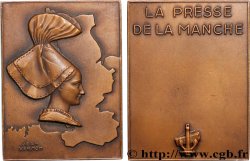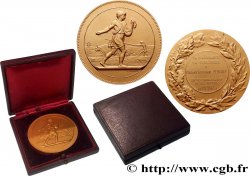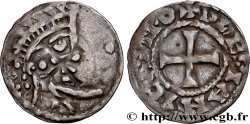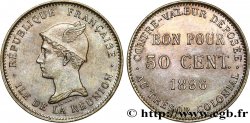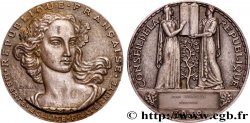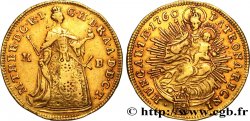You must signin and be an approved bidder to bid, LOGIN TO BID. Accounts are subject to approval and the approval process takes place within 48 hours. Do not wait until the day a sale closes to register. Clicking on "BID" constitutes acceptance of the terms of use of cgb.fr private live auctions.
Bids must be placed in whole Euro amounts only. The sale will start closing at the time stated on the item description; any bids received at the site after the closing time will not be executed. Transmission times may vary and bids could be rejected if you wait until the last second. For further information check the Live auction FAQ
All winning bids are subject to a 18% buyer’s fee.
All winning bids are subject to a 18% buyer’s fee.
| Estimate : | 200 € |
| Price : | 100 € |
| Maximum bid : | 120 € |
| End of the sale : | 09 July 2024 17:54:48 |
| bidders : | 1 bidder |
Type : Médaille, Conseil de la République, Sénateur
Date: 1958
Metal : silver
Millesimal fineness : 950 ‰
Diameter : 49,5 mm
Orientation dies : 12 h.
Engraver MULLER Louis (1902-1957)
Weight : 65,54 g.
Edge : lisse + corne 1ARGENT
Puncheon : corne 1ARGENT
Coments on the condition:
Patine hétérogène, présentant des taches d’oxydation et concrétions, notamment dans la légende de l’avers
Obverse
Obverse legend : .REPUBLIQUE. FRANCAISE. - LIBERTE/ EGALITE. FRATERNITE.
Obverse description : Buste féminin de face, la tête tournée à droite. Signé : LMULLER.
Reverse
Reverse legend : CONSEIL DE LA - REPUBLIQUE // JEAN BRAJEUX / SENATEUR // 1958.
Reverse description : Deux allégories féminine et masculine tenant les tables de la loi ouvertes; arbre entre les deux personnages. Cartouche à l’exergue.
Commentary
Cette médaille a été décernée au sénateur de l’Eure, Jean Brajeux (1895-1990) ingénieur agronome. Ayant été mobilisé en 1915, il sera grièvement blessé en 1918. En 1919, il est reçu au concours de l'Institut National Agronomique. Mobilisé à nouveau en 1939 comme capitaine de réserve, il est affecté à l'état-major de la VIe armée, au service du Chiffre. Démobilisé en juillet 1940, il regagne Evreux. Arrêté par les Allemands en juin 1944, il est transféré à Fresnes, puis libéré lors de l'entrée des forces alliées à Paris. Après avoir été conseiller municipal, il entre au Conseil de la République en 1957 jusqu’en 1958.








 Report a mistake
Report a mistake Print the page
Print the page Share my selection
Share my selection Ask a question
Ask a question Consign / sell
Consign / sell
 Full data
Full data


